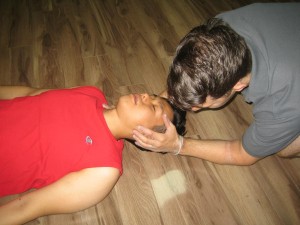Stridor is described as a high-pitched wheezing sound caused by disturbed airflow. The airflow is typically disrupted by an obstruction in the larynx. Generally, children are affected more often than adults.
What are the types?
- Inspiratory – the abnormal sound can only be heard during inhalation which indicates an issue with the tissues above the vocal cords.
- Expiratory – the abnormal sounds are only experienced during exhalation that is caused by an obstruction in the windpipe.
- Biphasic – this type occurs in both inhalation and exhalation. The narrowing of the cartilage close to the vocal cords is responsible for causing these sounds
What are the causes?
It is important to note that stridor can be caused by the following:
- Inhalation of smoke
- Airway obstruction
- Trauma to the airway such as a neck fracture or foreign object embedded in the nose or throat
- Swelling in the upper airway or throat
- Neck surgery
- Tumors
Trauma to the airway such as a neck fracture or foreign object embedded in the nose or throat. - Paralysis of the vocal cord
- Ingesting detrimental substances that damages the airway
- Croup
- Tonsillitis
- Bronchitis
- Epiglottitis
- Abscess
Who are at risk?
Children have softer, narrower airways than adults, thus they are at higher risk for stridor. Blockage can be prevented by immediate treatment of the condition. In case the airway is fully obstructed, the child could not breathe.
Management
A doctor should be seen right away. The treatment is based on the age and overall health of the child as well as the seriousness and cause of stridor.
Generally, the doctor might:
- Refer the individual to an ear, nose and throat specialist
- Administer oral or injected medication to lessen the swelling in the airway
- Suggest hospitalization or surgery in serious cases
- Require further monitoring

